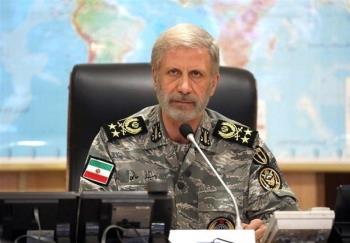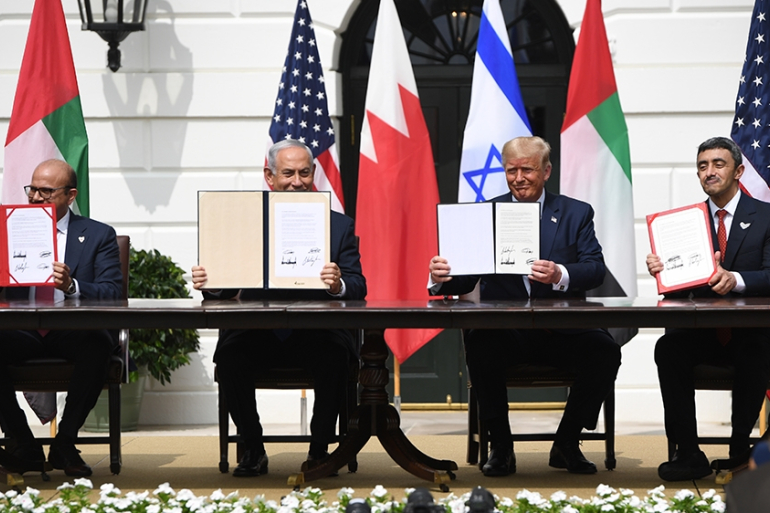Alwaght- The UAE, Bahrain, and Morocco envoys to the UN are set to mark with Israeli counterpart in New York the first anniversary of the normalization with the Israeli regime.
The Israeli mission to the UN invited other countries' representatives and media to join the celebration of the agreements, dubbed by Tel Aviv and Washington Abraham Accords.
Al-Quds Al-Arabi newspaper reported that at the ceremony, hosted jointly by Abu Dhabi, Manama, Rabat, and Tel Aviv, the Israeli envoy Gilad Erdan will deliver a speech. The American envoy Linda Thomas Greenfield is already certain to join the event.
While about a year has gone since the normalization agreement between the Israeli regime and a few Arab countries, the results and achievements of this agreement for the Arab countries seem to be very superficial and insignificant.
Propagandistic hasty agreement
What is very clear about the normalization agreement is that it was very hasty, made public with a sudden Donald Trump decision.
Actually, this agreement was made under a lot of pressure from Trump on the eve of the US presidential election, so that Trump would gain the support of the Zionist lobby in competition with other presidential candidates. The deal was such a rush that it could not draw the support of some other Arab countries, including Saudi Arabia and Oman. Although the time's Israeli Prime Minister Benjamin Netanyahu had earlier traveled to Oman for advocacy, Muscat did not join in. The normalization was regarded an election shot for Netanyahu whose main goal behind the hasty agreement was drawing election support from public.
The normalization deal came as both the UAE and Bahrain already had secret ties with the Israelis, which meant that signing the accord was more a media and electoral show than a genuine agreement. It failed to save its architects, Netanyahu and Trump, from election loss, however.
Anniversary of a dead agreement
The signatories celebrate its first anniversary while the normalization deal is practically dead. If the deal was expected to bring full Arab-Israeli normalization, it is a failed one now because except for a few it did not bring on board all of the Arab countries.
Even the leaders of Riyadh, despite the promises they made under pressure from Trump to join the agreement, due to the fruitless nature and negative consequences, did not join in. The Saudi leaders knew that the deal was designed to serve Trump and Netanyahu and damage Arab interests.
In Bahrain, after a year, protests are still being held in rejection of normalization. The citizens strongly disapprove of close relationship with the "occupying regime."
Even in the US and Israeli regime, the agreement was not followed by new leaders and remains what it was a year ago.
Nearly a year later, the Arab signatories have not been able to assure their public opinion about the results and achievements of the agreement. It seems that the supporters and insiders of the signatories of the agreement have well understood the ineffectiveness of the agreement. The Emirati and Bahraini politicians, thus, are arranging for the anniversary of their "treason" to Palestinian people to ease the pressure coming from the public and even their inner circles.



























